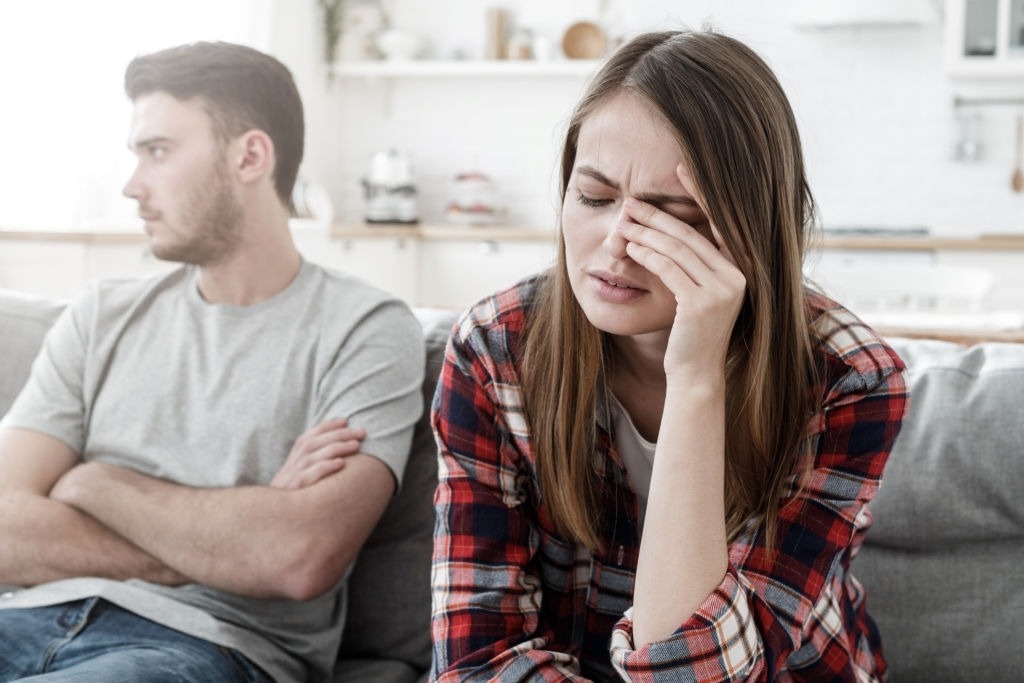When many people hear that someone is in an unhealthy or abusive relationship, their first question is, “Why don’t they leave?” If you’ve never been through an abusive relationship, this sort of response might seem logical. Just throw the deuces up and move on with your life – right? But here’s the thing – when it comes to relationship abuse, it’s never as easy as “just leaving.” We’re here to tell you why.
Leaving an abusive relationship is hard for many reasons. Here are some of the many reasons that someone in an unhealthy or toxic situation might stay with their partner.
1- Isolation
Domestic abuse often relies on isolating the victim: the perpetrator works to weaken her connections with family and friends, making it extremely difficult to seek support. Perpetrators will often try and reduce a woman’s contact with the outside world to prevent her from recognising that his behaviour is abusive and wrong. Isolation leads women to become extremely dependent on their controlling partners.
2- Danger and fear
One of the most important reasons women don’t leave is because it can be incredibly dangerous. The fear that women feel is very real – there is a huge rise in the likelihood of violence after separation. The threat of bodily and emotional harm is powerful, and abusers use this to control and keep women trapped.4 Female victims of violence are much more likely than male victims to be terrorized and traumatized.5 One said: “I was afraid of him…I knew he’d make leaving an ugly drawn-out nightmare.” Attempting to leave an abuser is dangerous. One woman felt trapped because of her husband’s “threats of hunting me down and harming all my loved ones including our kids while I watched and then killing me.”
3- Wanting to be a Savior.
Many described a desire to help, or love their partners with the hopes that they could change them: “I believed I could love the abuse out of him.” Others described internal values or commitments to the marriage or partner, with tweets like: “I thought I would be the strong one who would never leave him and show him loyalty. I would fix him and teach him love.” Others had pity and put their partner’s needs above their own: “His father died, he became an alcoholic and said that God wouldn’t want me to leave him because he needed me to make him better.”
4- Shame, embarrassment, or denial
Perpetrators are often well respected or liked in their communities because they are charming and manipulative. This prevents people recognising the abuse and isolates the woman further. The perpetrator often minimises, denies or blames the abuse on the victim. Victims may be ashamed or make excuses to themselves and others to cover up the abuse.
5- Trauma and low confidence
Imagine being told every day that you’re worthless and the impact that this has on your self-esteem. Victims have very limited freedom to make decisions in an abusive relationship, they are often traumatised, regularly told ‘you couldn’t manage on your own, you need me’. Fear is constant and they live in a world of everyday terror.
6- Financial Constraints.
Abusers often control every aspect of their victim’s life – making it impossible to have a job or financial independence. By controlling access to money women are left unable to support themselves or their children. They may fear having their children taken away or, if she has insecure immigration status, may fear being deported.
6- The support isn’t there when they need it
Asking for help is not easy. Misunderstandings about domestic abuse often prevent professionals from knowing what to do, how to talk about it or where to direct women disclosing abuse.
7– Family Expectations and Experiences
Many posted descriptions of how past experiences with violence distorted their sense of self or of healthy relationships: “I watched [my dad] beat my mom. Then I found someone just like dad,” or, “Because raised by animals, you partner with wolves.” Some mentioned family and religious pressures: “My mother told me God would disown me if I broke my marriage.”
8- Children
These women also put their children first, sacrificing their own safety: “I was afraid if he wasn’t beating me he would beat his kids. And I valued their lives more than my own.” And, “I stayed for 20 years while I protected our children, all while I was being abused.” Others mentioned staying to benefit the children: “I wanted my son to have a father.”
9– The Cycle of Abuse: after every abusive incident comes to a make-up honeymoon phase.
Often when an abusive situation happens, it is followed by the abuser doing something nice or apologizing and promising that they will never do it again. This makes their partner minimize the original abusive behavior.
10- Society normalizes unhealthy behavior so people may not understand that their relationship is abusive.
When you think that unhealthy or abusive behaviors are normal, it’s hard to identify your relationship as abusive and therefore there’s no reason to seek help.
With these reasons highlighted on why Women stay back;
We need to stop blaming survivors for staying and start supporting them to enable them to leave. By understanding the many barriers that stand in the way of a woman leaving an abusive relationship – be it psychological, emotional, financial, or physical threats – we can begin to support and empower women to make the best decision for them while holding abusers solely accountable for their behaviour.








